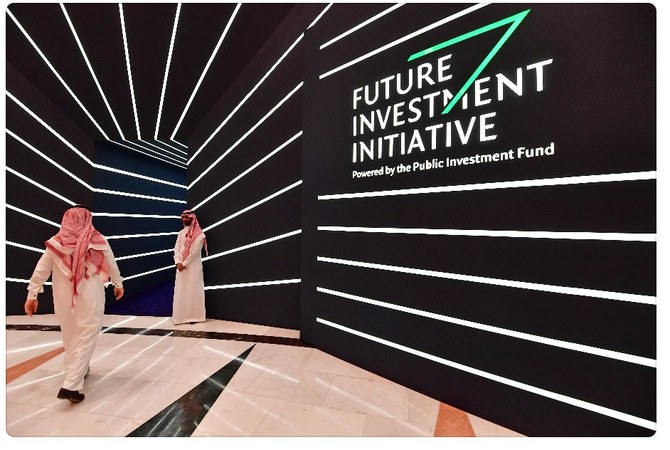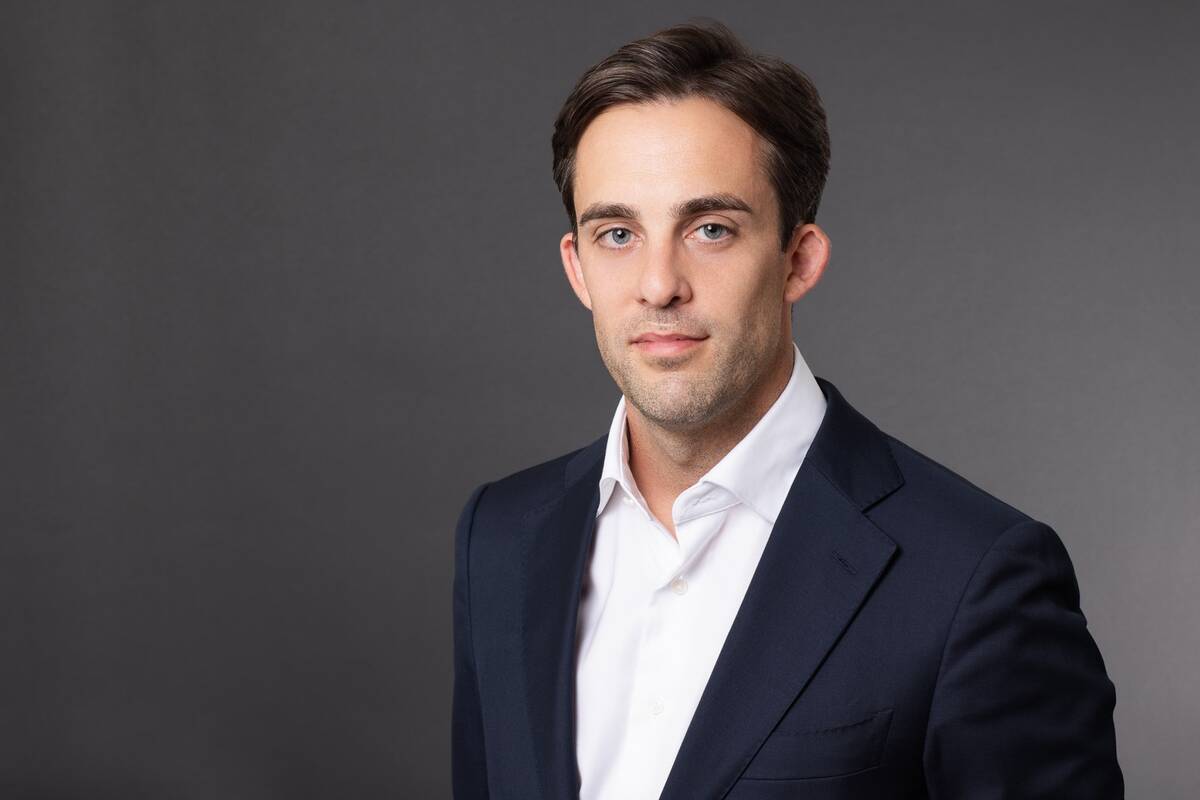RIYADH: The 7th edition of the Future Investment Initiative summit is set to unite 5,000 delegates and offer insights from 500 distinguished speakers across a spectrum of critical sectors.
To be held under the theme “The New Compass,” the event will be held in Riyadh from Oct. 24 to Oct. 26. The FII Institute is a worldwide nonprofit organization with an investment arm dedicated to making a global impact by fostering cross-border collaboration among exceptional minds.
It is dedicated to converting innovative ideas into practical solutions across critical areas such as artificial intelligence and robotics, education, healthcare, and sustainability.
Seif Sammakieh, partner and head of the Riyadh office at management consultancy firm Oliver Wyman, told Arab News: “There are significant opportunities for both investors and partners across the tourism and development sectors in Saudi Arabia.”
He highlighted the Kingdom’s commitment to unlocking the potential of its landscapes and cultural treasures for tourism, bringing forth profound opportunities.
Sammakieh added that it is heartening to see leadership preserving the peninsula’s long and rich history and leveraging it as a tremendous source of inspiration and empowerment for the nation’s majority youth population, who are more eager than ever to contribute to their country’s legacy.
He explained that this fresh perspective of perceiving the rich diversity as an asset and something to share with the world would propel Saudi Arabia toward becoming a global tourism leader.
Jad Haddad, head of digital at Oliver Wyman in India, the Middle East, and Africa, highlighted the profound impact of digital advancements on Saudi Arabia’s Vision 2030.
Haddad emphasized the pivotal role of the digital economy within the framework of Vision 2030, highlighting how emerging technologies present significant opportunities for economic diversification and sustainable development, including direct contributions to the economy and increased productivity in other sectors.
“If Saudi Arabia becomes a specialized producer of ICT services, it could see digital technologies alone contribute up to 10 percent of its GDP. Cloud, AI, and even original equipment manufacturing offer particularly strong potential for growth and disruption,” he added.
In March, Saudi Arabia was ranked second among the G20 countries and fourth globally in its readiness for digital systems, according to the UN’s International Telecommunication Union.
Akram Alami, partner and Middle East head of aviation, utilities, and sustainability and responsibility practices at Bain & Co., brings attention to the global energy challenge, a key topic at the FII Institute this year.
The second day of the event is set to cast a spotlight on emerging economies, new middle powers, and the critical realm of climate solutions.
“Global energy demand continues to grow and is expected to reach 250 peta-watt-hours versus 170 today by 2050 (50 percent increase) — therefore allowing for growing energy demand while reversing the trend on emissions presents a ‘Decoupling Challenge,’” Alami noted.
Additionally, Alami told Arab News that the race to develop new energy pathways such as renewables is gathering steam, and many of these technology-based solutions are targeted towards hard-to-abate sectors such as steel, cement, aviation, shipping, and petrochemicals, which pose significant decarbonization challenges due to the nature of their operations.
He added: “For the Middle East, and specifically the GCC, while decarbonization could be seen as an added cost or risk, it also carries a tremendous opportunity. Given the region’s potential in renewables, coupled with synergies from capital availability and nimble and decisive leadership, it has a massive opportunity to become the world’s clean energy hub.”
As Saudi Arabia sets its sights on deriving half of its energy mix from renewable sources by 2030, the Kingdom is actively advancing with 22.8 gigawatts of renewable energy projects.
The managing director of the Macro Trends Group in New York City, Karen Harris, emphasized the optimism surrounding Saudi Arabia’s transformative investments.
She said: “It’s hard not to be optimistic about the prospects for Saudi Arabia, given the direction of the investments it has been making.”
Harris highlighted that in a time of increasing global fragmentation, where the world faces the dual challenge of expanding energy access while limiting global warming, Saudi Arabia’s importance as a provider of energy, as well as its investments in hydrogen, position it to be an important contributor to overcoming both elements of that challenge.
“A commonly used word these days is resilience, and the Vision 2030 investments in economic diversification, not just within the energy sector but into tourism, education, and healthcare, amongst others. Its central position in terms of trade and logistics in the region could also create future opportunities,” she added.
Saudi Finance Minister Mohammed Al-Jadaan said earlier this month that continuous implementation of the fiscal and structural reforms plan is necessary to catalyze economic growth and maintain fiscal sustainability.
Harris explained that there will be a post-globalized world with more friction over borders.
She added: “We’d also expect to see more investments in regionalized infrastructure, including energy and logistics. We expect interest rates to be higher as more countries limit the types of investments that can travel across borders. These factors will change the demand and supply balance.”
She emphasized that Saudi Arabia’s Public Investment Fund will be an increasingly important player in that new world.
The event also hosts the FII Institute’s PRIORITY Summit, a platform addressing aspects that shape our quality of life, from the future of work to health, culture, and tourism.
Alami noted that the Kingdom is potentially the most fertile ground globally for technological innovation in sustainable power practices.
He also pointed out that Saudi Arabia is already pioneering the path of new tech, such as energy from hydrogen, where major projects have broken ground.
Alami attributed this to the region’s quick decision-making, sovereign capital with a long-term, trans-generational risk perspective, and advantageous cost structure. These factors collectively position the region as a key player in embracing new technologies. Global investors are pivotal in supporting the Kingdom’s journey towards achieving Vision 2030 objectives.
“Beyond the national borders of Saudi Arabia, the investment opportunity could also encompass renewable power exports to major demand centers such as Europe and South Asia. The ambition for the power sector in Saudi Arabia is high and will only be bolstered by global investments,” he said.
Riyadh Al-Najjar, PwC KSA country senior partner and chair of the ME board, talked to Arab News about the comprehensive initiatives significantly transforming the landscape in Saudi Arabia and the Middle East.
“Since the inception of Vision 2030, Saudi Arabia has set in motion 77 initiatives aimed at achieving three targets outlined in the Saudi Green Initiative. These initiatives include areas such as afforestation and biodiversity protection to emissions reduction and establishing new protected areas,” he revealed.
Al-Najjar explained that Saudi Arabia remains determined to invest in its community by implementing plans to raise living standards, improve food and water security, enhance health services, and develop an extensive energy infrastructure.
He revealed: “We are launching our first Saudi Economy Watch, shedding light on Saudi Arabia’s numerous achievements and delving into the Kingdom’s economic growth since reaching the midway point on its journey towards Vision 2030.”
“Based on the current strong position of Saudi’s economy, I believe remaining dedicated to achieving the 2030 Agenda for sustainable development and taking actions through innovative approaches aligning the Saudi Vision 2030 will maintain a growing economy,” he said.
The demand for sustainability and innovation remains paramount in a world increasingly marked by regionalized infrastructure and evolving economic dynamics.
The Kingdom is actively focused on leading change and aligning with the broader global vision of promoting peace, prosperity, and sustainability on a global scale through tourism and entertainment, digital transformation, green finance, and renewable energy.
“With the Kingdom continuously supporting these initiatives, they are now recognized globally as the investment partner of choice for global opportunities. With the plan firmly in place, Saudi Arabia will continue to inspire innovative solutions to global challenges and set new targets promoting positive, long-term outcomes that support a greater cause for global issues,” Al Najjar concluded.























